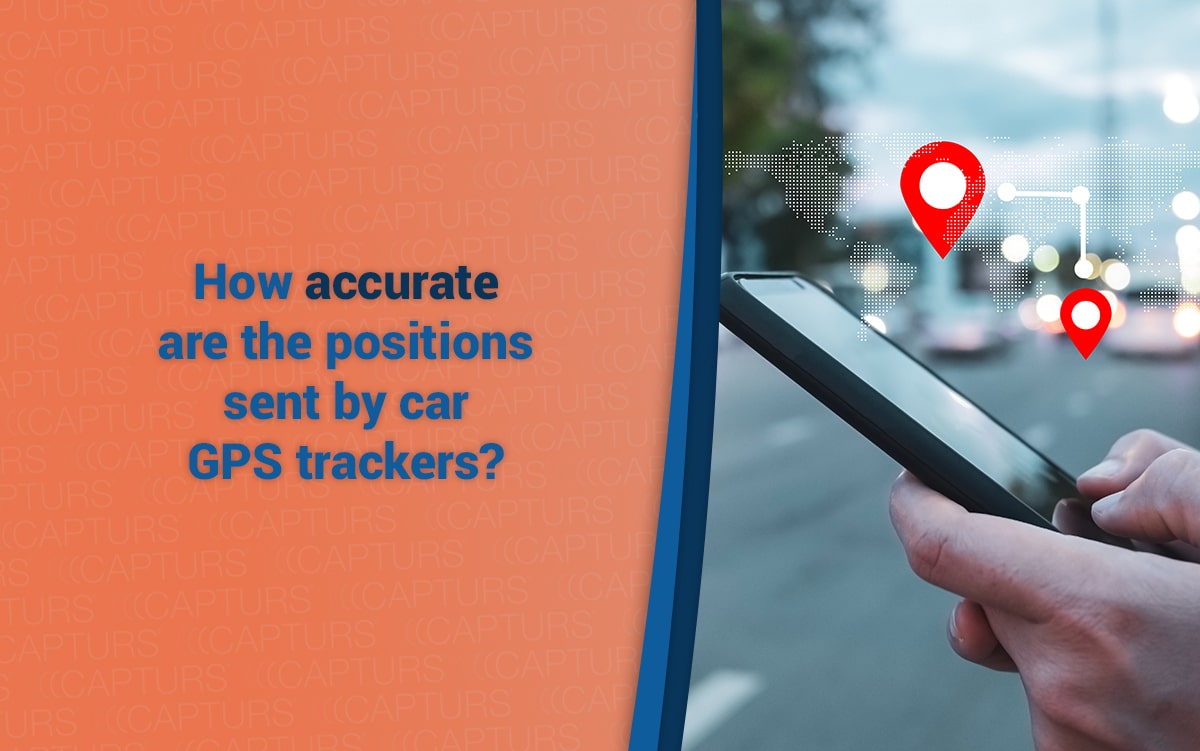How accurate are the positions sent by car GPS trackers?

GPS trackers for cars are electronic devices that track the geographic position of a car or fleet of vehicles. They are used in many fields, such as logistics, security, and health.
The accuracy of positions sent by GPS trackers varies depending on several factors, such as the quality of the GPS signal, the position of satellites, and the environment in which the tracker is located.
The subject of this article is the accuracy of the positions sent by these GPS trackers. We’ll explore how they work, what factors can influence their accuracy, and how that accuracy can be improved. We will also examine the importance of GPS accuracy for fleet tracking.
Understanding how GPS trackers work
Principle of operation of a GPS
A GPS tracker, or global positioning system, is a device that uses signals from GPS satellites to determine the precise location of a vehicle. The operating principle of a GPS is based on the concept of triangulation. It receives signals from at least four satellites and uses the time difference between sending and receiving the signal to calculate the distance between the satellite and the receiver. By knowing the position of the satellites, it can then determine the exact position of the receiver.

How a GPS tracker sends locations
A GPS car tracker regularly sends information about its location to a centralized system. This can be done through different means, such as cellular networks, Wi-Fi or even satellites in some cases. This information can then be used to track the vehicle’s position in real time, record its route or even trigger alerts in the event of unauthorized movements.
Accuracy of positions sent by GPS trackers
The accuracy of the positions sent by a GPS tracker is a crucial aspect of vehicle fleet tracking. However, several factors can influence this accuracy, such as the GPS car tracker technology used.
First of all, the accuracy of a GPS depends largely on the quality of the signal received from satellites. Factors such as weather conditions, tall or dense buildings, tunnels, contact with metal or magnets, mountains, or even dense tree foliage can interfere with the GPS signal and reduce its accuracy.
Note that positioning the GPS tracker indoors can significantly reduce the accuracy of the GPS tracker (in a garage for example).

Additionally, accuracy can also be affected by the number of satellites visible to the GPS tracker. The more satellites are visible, the higher the accuracy. However, in some dense urban areas or areas with rugged terrain, the number of visible satellites may be limited.
In general, the typical accuracy of a car GPS tracker can vary from a few meters to several tens of meters. However, it is important to note that this accuracy may vary depending on the specific conditions mentioned above, but also by the model, brand or budget given to the GPS tracker (to find out more, refer to our article on what is the best GPS tracker). Depending on the model, take the opportunity to also compare the battery life of the GPS tracker and whether it is jammable or not jammable.
Improved accuracy of GPS trackers
Technologies and techniques to improve accuracy
The accuracy of GPS trackers is of paramount importance, particularly for vehicle fleet tracking. Fortunately, there are several technologies and techniques that can help improve this accuracy.
One of the most common methods for improving GPS accuracy is the use of GPS augmentation systems, such as WAAS (Wide Area Augmentation System) in the United States or EGNOS (European Geostationary Navigation Overlay Service). ) in Europe. These systems use ground stations and geostationary satellites to provide corrections to GPS signals, improving accuracy.
Another technique is to use a differential GPS system (DGPS), which uses a fixed base station to provide real-time corrections to GPS signals. This can improve accuracy to within a meter in certain conditions.
Additionally, the use of multiple satellite navigation systems, such as GPS (US), GLONASS (Russia), Galileo (Europe), and BeiDou (China), can also help improve accuracy by increasing the number of satellites available.
Importance of accuracy for vehicle fleet tracking
GPS accuracy is particularly important for vehicle fleet tracking. Better accuracy can enable more accurate route tracking, better time-of-arrival management, and better response in emergencies.
Use case: Vehicle fleet tracking
Importance of fleet tracking for businesses
Vehicle fleet tracking is a key application of GPS trackers. Many businesses, whether transportation companies, delivery services, or companies with field teams, rely heavily on fleet tracking to effectively manage their operations.

How GPS Accuracy Affects Fleet Tracking
GPS accuracy plays a crucial role in fleet tracking. High accuracy allows for more accurate tracking of vehicle routes, better estimation of arrival time, and faster response in an emergency. For example, in the case of a delivery company, high GPS accuracy can help plan routes more efficiently, avoid delays, and improve customer satisfaction.
In addition, a position lost due to lack of precision may not be found later, depending on the frequency with which the GPS tracker positions are sent, as well as the network coverage (LPWAN Sigfox, LoRa, GSM, etc.) and the settings associated with the GPS trackers.
Examples of Companies Using GPS Trackers for Fleet Tracking
Many companies have already adopted fleet tracking using GPS trackers. For example, transportation companies can use these devices to track the position of their vehicles in real time, optimize routes and reduce operational costs. Likewise, emergency services, such as ambulances or firefighters, can use GPS tracking to respond to emergency calls more quickly.

